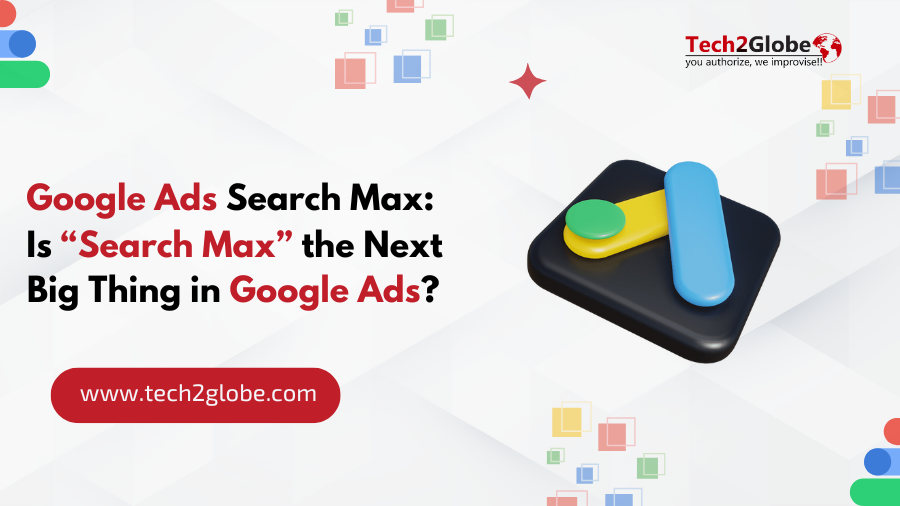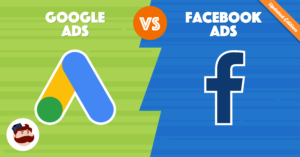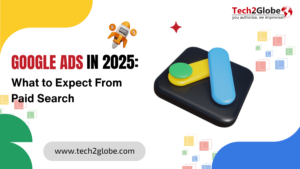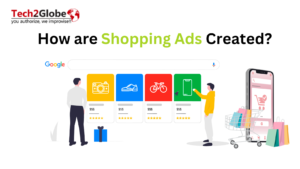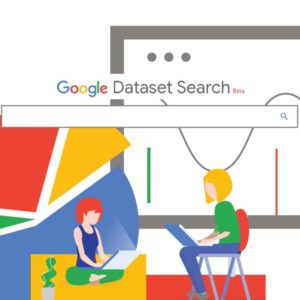Google is always changing its advertising strategy; the most recent excitement involves a new match type known as Search Max. Recently observed by advertisers, this capability suggests a potential growth of Google’s AI-powered automation in search advertising. Still, is this the next major change in Google Ads or only another experiment? Let’s break it down.
What You Need to Know?
- Search Max merges Broad Match, Performance Max, and Dynamic Search Ads, handing Google’s AI more control.
- More automation expands reach but can spike CPCs and waste ad spend.
- Google selects URLs and adjusts ad copy, so landing pages must be conversion-ready.
- Currently in beta for select advertisers, but a wider rollout is likely.
- Testing Search Max against traditional campaigns is key to measuring its effectiveness.
- AI expands reach beyond standard keywords, making negative keyword management essential to avoid wasted spend.
What is Google Ads Search Max?
A new campaign type called Google Ads Search Max combines Dynamic Search Ads, Broad Match, and Performance Max into one automated campaign. Built to optimize reach and efficiency, it lets Google’s AI oversee landing page choice, keyword matching, and ad content changes.
While this automation increases reach and improves performance, it also decreases advertiser management, potentially leading to less precise targeting and increased expenses. Currently in beta testing, Search Max captures Google’s continuous effort toward artificial intelligence-driven advertising. Advertisers must regularly monitor performance, adjust landing sites, and refine negative keywords if they are extensively used to maintain efficiency. Ensuring budget effectiveness and campaign success depends on adjusting to this shift.
How Does Search Max Work?
While details are limited, here’s what we know about working of Google Ads Search Max:
- It’s in Beta Testing: Search Max is currently available only to select advertisers, appearing in match type reports.
- AI Controls Keyword Matching: Instead of manually selecting keywords, Google’s AI expands your reach by automatically matching searches to your ads.
- Automated Ad Copy & URL Selection: AI tweaks your headlines, descriptions, and landing page choices to improve conversions.
- More Machine Learning, Less Control: Search Max could redefine how advertisers manage PPC campaigns, making automation the new norm.
Why Search Max Matters for Advertisers?
If fully implemented, Search Max could change the way businesses run Google Ads campaigns.
Broader Reach
Search Max expands beyond traditional keyword-based targeting. It may allow ads to appear for a wider range of search queries—even ones advertisers didn’t originally target. This could increase brand visibility and attract new customers.
AI-Powered Optimization
Google’s machine learning will take the lead in refining ad targeting. Instead of manually adjusting bids, keywords, and placements, AI will analyze user intent and behavior to decide when and where ads should appear. This could improve efficiency, but it also reduces advertisers’ control over campaign performance, making it harder to fine-tune targeting.
New Strategy Adjustments
Since Search Max operates differently from traditional search campaigns, advertisers may need to rethink their campaign structures. Standard keyword-based strategies might not work the same way, requiring businesses to test and adapt new approaches.
Potential Benefits and Challenges
Below, find the benefits of Google Ads Search Max as a fully automated search campaign solution:
- Improved Conversion Rates – AI-driven improvements may increase the relevancy of advertisements.
- Reduced Manual Labor – Automated matching may lessen the requirement for significant keyword research.
- Expanded Reach – Greater visibility may result in increased traffic and conversions.
Challenges to consider:
- Loss of Control – Advertisers might have less control over exact search term targeting.
- Higher Costs – Broader reach could mean increased ad spend without guaranteed returns.
- Algorithmic Uncertainty – As with Performance Max, Google’s automation may not always align with advertiser goals.
The Shift Towards Automation in Google Ads
As Google Ads constantly adds AI-driven tools like Smart Bidding, Responsive Search Ads, and Performance Max campaigns, its inclination for automation is clearly evident.
Google Ads’ automated algorithms let companies change in real time depending on predefined criteria. By automatically updating ad status, budgets, bids, and more, these guidelines minimize handwork. If an advertisement falls off the first page of search results, for instance, you may design a rule to automatically raise the offer.
With Search Max, automation takes an even bigger role. While this may improve efficiency and expand reach, advertisers must closely monitor performance to ensure AI-driven changes align with their goals, as broader targeting could mean higher costs and unpredictable conversions.
Conclusion
Ultimately, to stay competitive and maximize ad performance, advertisers need to keep a close watch on the latest Google Ads’ new feature, Search Max.
Weak pages might affect conversions and raise expenses, so we advise you to check performance, improve targeting, and maximize your landing pages. Having excellent landing pages is more important than ever since Search Max is automating search term matching and ad delivery.
Need assistance changing your plan? Let’s talk. We will ensure your campaigns are tuned in, producing actual results rather than merely feeding Google’s AI more ad money with no return.
Also Read:
TikTok Restored in the USA After Brief Ban: What You Need to Know
Google Ads in 2025: What to Expect From Paid Search
The Process That Affects a Website’s Visibility
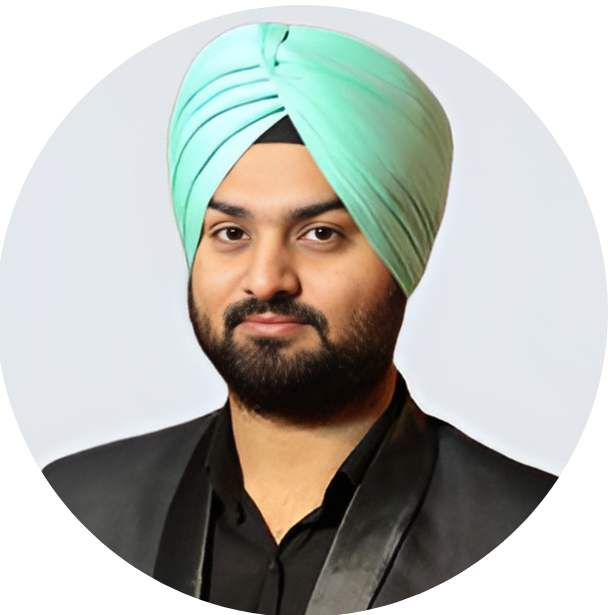
Sarabjeet Singh is the Vice President of Operations at Tech2Globe and brings over 15 years of experience in various industries, including IoT, education, retail, government, FMCG, hospitality, and e-commerce. His leadership focuses on operational excellence and exceeding customer expectations, implementing contemporary solutions. Sarabjeet’s expertise spans e-commerce consulting, software development, data management, BPO/KPO support services, digital marketing, graphics, and startup consulting. He fosters a collaborative work environment, ensuring Tech2Globe delivers high-quality solutions.




